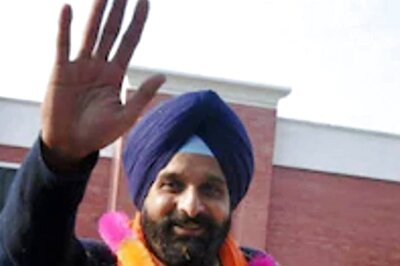
views
The recent polls to the State Assemblies has thrown up certain weaknesses of our democracy to the fore worthy of some attention. One such found expression through a stray voice heard against the election itself. This discordant noise was effectively stilled by a few arrests and hence it was not widely heard by the public at large. Yet it was loud enough to stir the conscience of some of our intellectuals, who lost no time in reminding the public about the importance of freedom of expression.
None other than extremists would dispute the axiom that a functioning democracy is all about people's participation in the governing process. In modern democracies, this can only be achieved through representatives duly elected by the people. Therefore, election boycotts would undoubtedly cut at the very roots of the democratic polity. Admittedly, in a malfunctioning democracy, the people must have in their hands some kind of weapon to effectively combat such misgovernance.
One seemingly mild but effective weapon is civil disobedience. Election boycott is the last weapon in the hands of the people, where fair election becomes a casualty. Where both these fail, civil war, also called revolution, comes in as the ultimate weapon.
The first of these weapons was used recently in India, by Gandhian Anna Hazare, as a first step towards combating corruption in high places allegedly ravaging the country in a very big way. Immediate response came from the government and political parties because our politicians have not yet crossed the threshold of no return.
Election boycotts might be resorted to where fair election becomes impossible. Viewed superficially, our elections are fair. The Election Commission with its elaborate machinery and power, and exercising high vigil, is ensuring a free and fair election in the country. But then the question is: 'fair' to whom? Certainly it does exercise fairness and equity inter se the political parties, between the contestants. But do we the voters feel that kind of equity in our much celebrated election process?
The answer is a resounding 'NO'. The system as it exists now offers us the limited option of 'either or'. Sceptics might say: it is like either the devil or the deep sea. The voters have no real choice. And to that extent, ours is a limited democracy, an unfair and inequitable democracy.
Look at the election process in America. The presidential candidates are chosen by either party after passing through a rigorous process that begins more than a year before the election date.
Each party will have numerous aspirants to begin with, but the final candidate is selected after a number of public debates widely televised over the nation and after conducting several popularity polls among registered voters of the country.
By the time the presidential candidate is chosen, the American nation knows his full biodata, his political and social antecedents, his strengths and weaknesses, his views and action plans concerning national and international issues, and his name becomes a household one in the country. This is true of the candidates of both the main parties. And the President is chosen from these two with the full knowledge of an informed nation. An election that is fair not only to the contestants and the parties but also to the voters.
We in India do not have this kind of fair choice. Here candidates with known criminal background are thrust upon the voters by the respective parties and, by way of adding insult to injury, we are told it is the 'sacred duty' of the citizen to vote for either of these two criminals. In the recent Tamil Nadu election, the situation was worse.
The two main political gangs offered huge bribes, including free Haj pilgrims for Muslims and Bethlehem tour for Christians, if they would vote them to power! People's money to be misused for advancing their selfish causes!
Is this fair election? And if some citizens, especially in TN, militate against this kind of essentially unfair election, and call for an election boycott, can any one legitimately blame them? Worse, can anyone arrest them for their free expression?
(K X M John, the writer of this piece, is former Executive Director, IDBI)



















Comments
0 comment